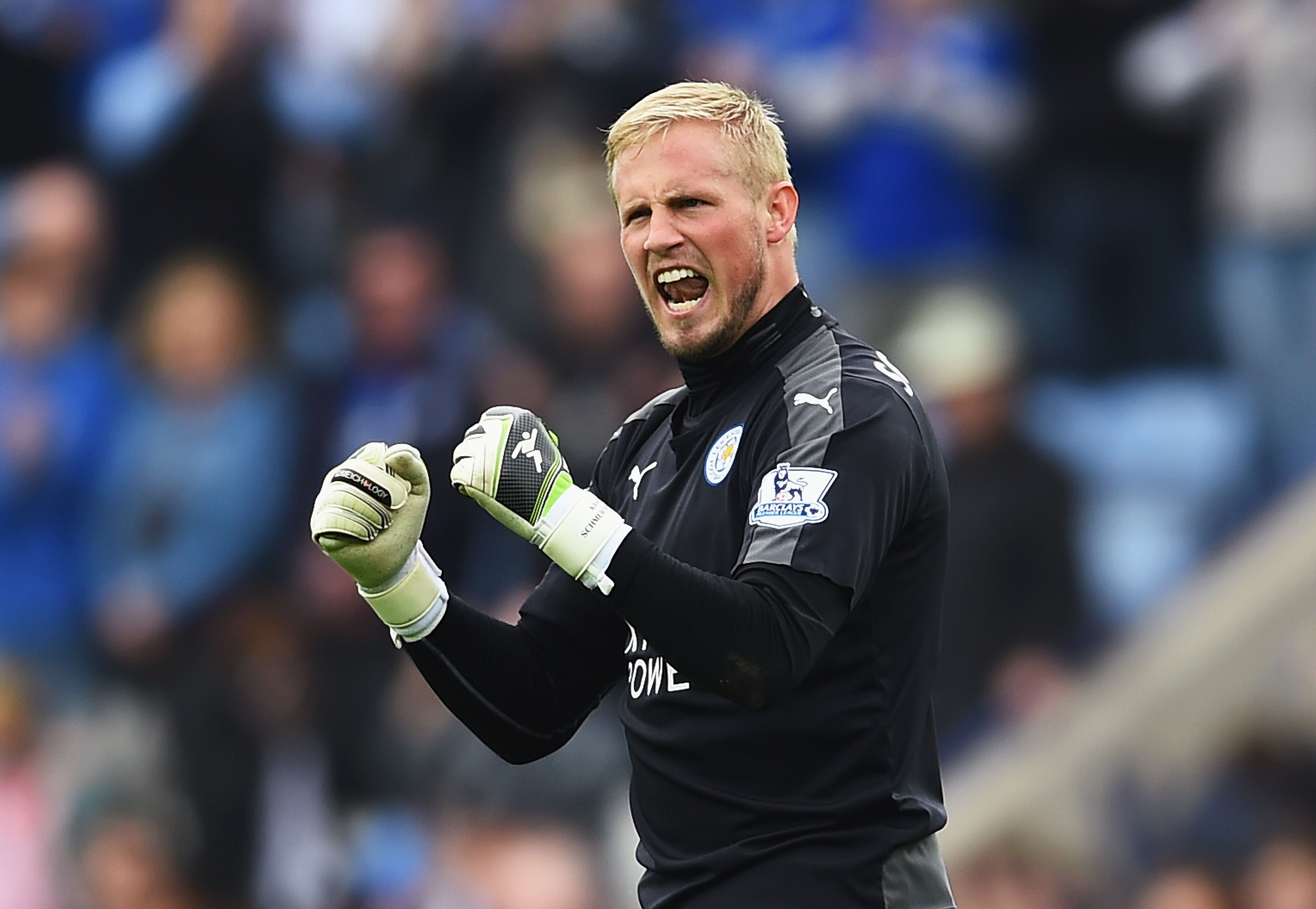
And a big part of the credit for that will have to go to Falkirk.
It is nearly a decade since Schmeichel spent half a season with the Bairns as a 20-year-old youngster on loan from Manchester City in 2006/07.
He revelled in his time in Scotland, producing a number of stellar performances, including a Man-of-the-Match display in front of nearly 50,000 against Rangers at Ibrox.
The Dane was part of Falkirk’s best league season in the last 20 years.
Now he could be a history maker with Leicester City as they chase the most unlikely title success in living memory.
Following on from similar loan spells south of the border at Darlington and Bury, Schmeichel admits that the exposure to the tough world of real football, away from a cosseted life at a Premier League academy, was crucial for his education.
“All those loan spells I had was down to me wanting to get out and play,” he remembers.
“I didn’t want to sit on a bench. For me, that was not being a footballer and just picking up a wage for doing nothing.
“It was vital to get out and play. I look back and I have played in Scotland, Wales, internationally and at every level in England apart from League One.
“That has given me a great football education, a way of adapting to whatever team I play in and whatever style we want to play.
“I always pushed for going out on loan. I was doing nothing at Manchester City.
“I was training – but you can train all day.
When you go out on loan to the lower divisions or a place like Falkirk, it all comes down to match situations.
“It is not the glitz and glamour that football is portrayed as in the Premier League.
“There is not the same amount of money, so people’s livelihoods are on the lines – mortgages and families. You are suddenly making decisions that can affect that.
“Having that type of pressure on you is what you need, especially as a goalkeeper because being a good keeper comes down to decision-making.
“So for me it was vital to go out and get that experience and feel that type of pressure.
“The game that stands out the most for me was playing for Bury away to Notts County on the last day of the season in League Two in 2006.
“We needed a draw to stay up. We drew 2-2 and survived.
“If we hadn’t, Bury would have been relegated into non-league and that would have been catastrophic.
“That’s why there is no pressure now. This is what you play football for. Those games when I was on loan, everything was on the line – livelihoods, people’s families. That was proper pressure.”
Schmeichel has become a central figure in Leicester’s run to the top of the Premier League the longer the season has gone on.
Having waited two months for his first clean sheet, the son of the legendary Manchester United goalkeeper Peter, has kept 13 in his last 23 games.
The last four have been part of 1-0 victories that have taken the Foxes seven points clear of second-placed Tottenham, ahead of this lunchtime’s trip to Sunderland.
It is a remarkable story, given that Claudio Ranieri’s arrival as manager last summer at the King Power to replace the sacked Nigel Pearson was greeted with derision in many quarters.
But Schmeichel insists that the Italian immediately won the respect of his new charges by not tinkering straight away with what had kept the Foxes up last season.
“The best compliment I can pay to the manager is that he resisted the urge to change everything,” he adds.
“That is something a lot of managers want to do. They bring in their own people and do everything their own way.
“He came in, introduced himself and then didn’t say anything for a week.
“He just watched us in training, saw how we worked and recognised that we had a squad that worked well with each other, played well and trained hard.
“Since then, he has just tweaked things here and there, like switching to 4-4-2. But as a player, you appreciate a manager who can compromise his own ways for the good of the team.”
READ MORE
Leicester City manager Claudio Ranieri: I’m back at the top level thanks to The Sunday Post!

Enjoy the convenience of having The Sunday Post delivered as a digital ePaper straight to your smartphone, tablet or computer.
Subscribe for only £5.49 a month and enjoy all the benefits of the printed paper as a digital replica.
Subscribe